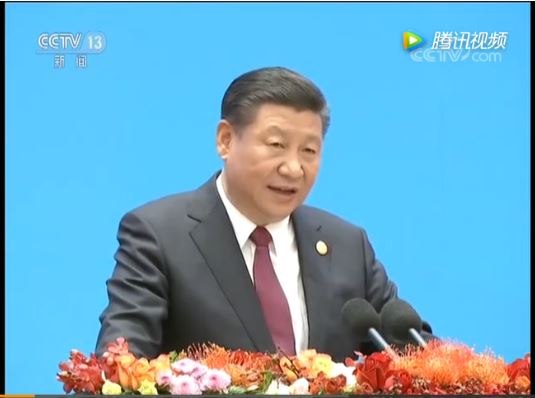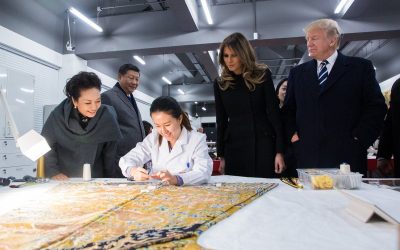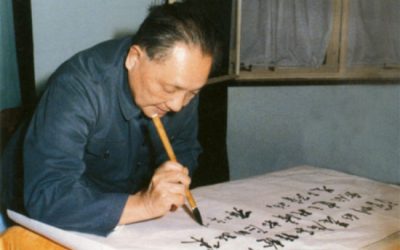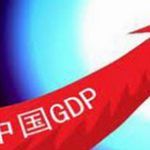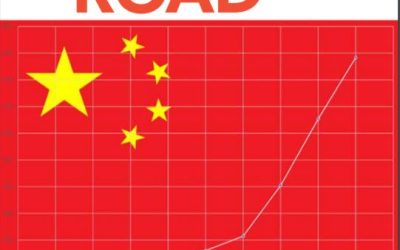The fundamental concepts in the speech, with its self-explanatory title, ‘Work Together to Build a Better World’, took up ideas already outlined in Xi Jinping’s book ‘The Governance of China’ but developed them further. Although President Xi Jinping was presenting a positive framework, and therefore did not polemicize with other views, alternative frameworks the speech was counterposed to will be briefly mentioned at the end of this article. The official English translation of the speech has not yet been published so the following excerpts have been translated from the Chinese but must not be taken as the official translation.
Therefore, ‘The community of human destiny, as its name implies, is that the future and destiny of every nation and every country is closely linked’
And more precisely regarding human civilization: ‘The prosperity of civilization and the progress of humankind cannot be separated from seeking common ground while differences will remain. It is open and inclusive. It cannot be separated from cultural exchanges and from learning from each other. History calls for human civilization to shine in its splendour, and different civilizations should live in harmony and complement each other. We should uphold the view that the world is rich and colourful, and civilizations are diverse, so that all the kinds of civilizations created by humankind enhance each other’s beauty and weave beautiful and gorgeous pictures.’
These points clearly developed further President Xi Jinping’s speech, also with the self-explanatory title ‘Exchanges and Mutual Learning Make Civilizations Richer and More Colourful’, made at the headquarters of UNESCO in March 2014 in which he stated: ‘civilizations are equal, and such equality has made exchanges and mutual learning among civilizations possible. All human civilizations… have their respective strengths and weaknesses. No civilization is perfect on the planet. Nor is it devoid of merit. No single civilization can be judged superior to another.’
Classical Chinese and Western thought
The roots in China of this understanding that civilizations are equal but different was noted earlier by President Xi Jinping quoting the classical Chinese text The Mencius: ‘As early as over 2, 000 years ago, the Chinese people came to recognize that “it is natural for things to be different.”
Although, as Xi Jinping is China’s President he naturally cited classical Chinese sources, these ideas were equally formulated by, and could also be expressed in the language of, the most important Western philosophers. The fact that everything which exists differs was first formulated in Western thought by the Greek philosopher Heraclitus 2,000 years ago in his famous statement ‘no man ever steps in the same river twice’, it was proved by the Western philosophers Spinoza and Leibniz, while the concept of the combination of difference and equality was formulated by Hegel – and was also known to the CPC via Marx.
This fact that that the same conclusion is arrived at by different civilizations, which had no substantial intellectual connection with each when other such ideas were formulated, is a fundamental expression of the fact that although there are many starting points there is only one truth on such issues – which is therefore arrived at no matter how much these starting points differ.
From the interconnectedness of nations, the practical foreign policy conclusion Xi Jinping stated is popularly expressed as ‘win-win’ and more formally as the ‘community of common destiny’. This means that while naturally there are differences and conflicts between countries this is less important in the long run than their common interests. This is the key guideline for foreign policy.
The alternative framework
Although President Xi Jinping naturally did not engage in polemics it is clear the concept of certain major figures in the US is directly counterposed to this. For example, US National Security Adviser McMaster and Director of the US National Economic Council Cohn jointly authored a Wall Street Journal article arguing: ‘the world is not a “global community” but an arena where nations, nongovernmental actors and businesses engage and compete for advantage.’ Or as they put it drawing the practical conclusion. ‘America First signals the restoration of American leadership.’
To summarise, in the concept expressed in Xi Jinping’s speech countries are different but equal, and need to cooperate for common interests. In the alternative concept countries are unequal, with one ‘leader’ and the others therefore necessarily ‘followers’, engaged in a primarily competitive struggle for advantage.
As not merely China but other countries will never accept that they are inferior to other countries, Xi Jinping’s concept of equality and difference, which expresses the most advanced ideas of both classical Chinese and Western thought, is therefore of far greater interest to countries throughout the world than the idea that they should be ‘followers’ of a single other country.
It was because of China’s fundamental concepts of the relations between countries that not merely was there such a large attendance at the ‘CPC in Dialogue with World Political Parties High-Level Meeting’, but President Xi Jinping’s speech was so well received.


